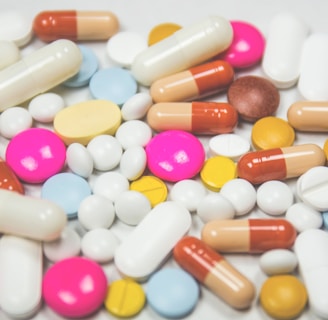FDA Regulations in Food, Drug, and Cosmetic Trade
UNITED STATES
12/18/20243 min read


In the United States, the trade of food, drugs, and cosmetic products is strictly regulated, with the U.S. Food and Drug Administration (FDA) at the center of these rules. The FDA’s primary role is to protect public health by ensuring these products are safe, effective, and accurately labeled. For companies operating in these industries, compliance with FDA regulations is not just mandatory but crucial for long-term success. This blog explores the FDA’s role, the scope of its regulations, and the key compliance requirements.
1. The Role and Authority of the FDA
Established under the Pure Food and Drug Act of 1906, the FDA’s authority has expanded significantly over the years. Its primary responsibilities include:
Food Safety: Ensuring food products are clean, healthy, and properly labeled.
Drug and Vaccine Approval: Assessing the safety and efficacy of medicines and vaccines.
Medical Devices and Cosmetics: Monitoring the quality and safety of these products.
Tobacco Regulation: Overseeing the production and distribution of tobacco products.
2. Scope of FDA Regulations
The FDA enforces specific requirements for various sectors, including food, drugs, cosmetics, and medical devices.
2.1. Food Products
Food Safety Modernization Act (FSMA): Requires food producers and distributors to implement risk-based preventive controls.
Labeling Requirements: Food labels must include accurate nutritional information, allergen details, and ingredient lists. Misleading claims are strictly prohibited.
Imported Foods: Foods imported into the U.S. must meet FDA standards.
2.2. Drugs and Medical Products
Pre-Market Approval (PMA): New drugs must be approved by the FDA through a rigorous process, including clinical trials.
Good Manufacturing Practices (GMP): Drug manufacturers must comply with GMP standards to ensure product quality.
Prescription and Over-the-Counter Drugs: All drugs must be clearly labeled, including usage instructions and potential side effects.
2.3. Cosmetic Products
Federal Food, Drug, and Cosmetic Act: Cosmetic products must be safe and free from misleading claims.
Ingredient Disclosure: All ingredients must be clearly listed on product labels. The use of banned substances can lead to severe penalties.
3. Compliance Requirements
Meeting FDA compliance standards is essential to avoid penalties, product recalls, and damage to a company’s reputation. Here are the key steps to ensure compliance:
3.1. Product Registration
Food producers, pharmaceutical companies, and cosmetic businesses must register their products with the FDA.
Drug and medical device manufacturers must also provide clinical test results as part of the registration process.
3.2. Labeling and Packaging
Product labels must be clear, accurate, and not misleading. For instance, drug labels must include usage instructions and potential risks.
3.3. Import and Export Regulations
Products imported into the U.S. are inspected by the FDA at borders.
Exporters must also adhere to FDA standards to ensure their goods meet international safety requirements.
3.4. Inspections and Reporting
The FDA conducts routine inspections of manufacturing facilities. Companies must be prepared with internal auditing systems to ensure compliance.
If violations are found, the FDA issues a "Form 483," requiring corrective actions.
4. Consequences of Non-Compliance
Failing to comply with FDA regulations can have severe repercussions, such as:
Product Recalls: Unsafe or mislabeled products must be removed from the market.
Fines: Financial penalties vary depending on the severity of the violation.
Business Suspension: In extreme cases, production or sales operations may be halted.
Legal Liability: Non-compliance can lead to lawsuits and federal investigations.
5. Strategies for Success in FDA-Regulated Markets
Seek Legal Expertise: FDA regulations are complex. Partnering with experienced legal advisors can streamline compliance efforts.
Employee Training: Ensure your team is well-versed in FDA requirements.
Establish Internal Audits: Regular internal inspections can help identify and address potential issues.
Stay Updated: FDA rules are subject to change. Keeping up with updates is essential to remain compliant.
Conclusion
The trade of food, drugs, and cosmetics in the U.S. is governed by stringent FDA regulations. Adhering to these rules is not only a legal obligation but also a critical factor in building consumer trust and achieving business growth. Investing in compliance measures ensures both the safety of your products and the long-term success of your business.
